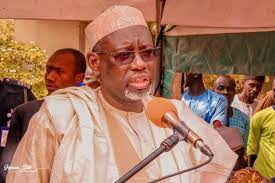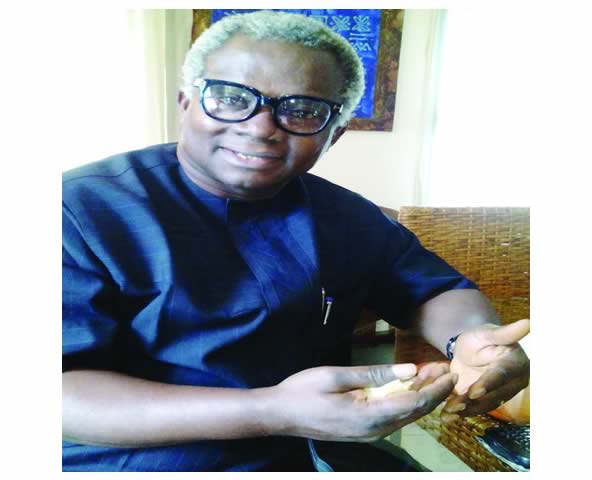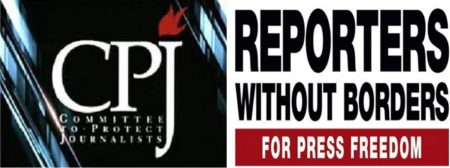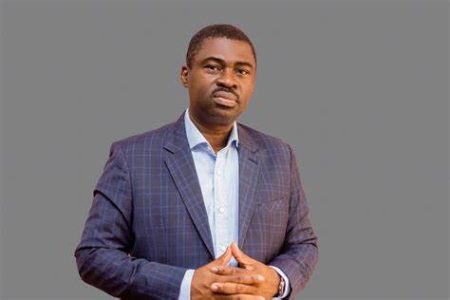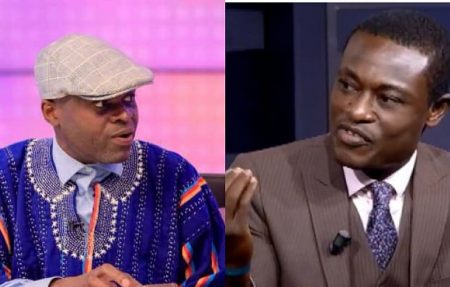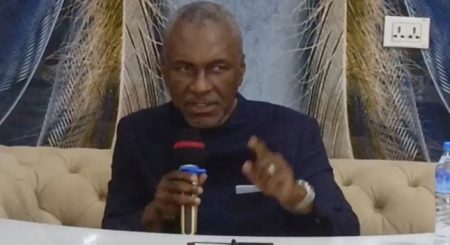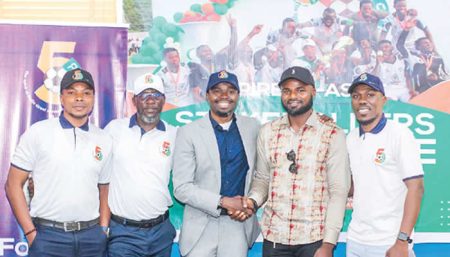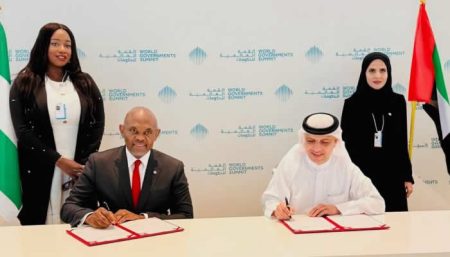Osita Okechukwu, a prominent figure within the All Progressives Congress (APC) and former Director-General of the Voice of Nigeria, has shifted the blame for recent controversial remarks made by APC National Chairman, Dr. Umar Ganduje, onto the opposition Peoples Democratic Party (PDP). Ganduje’s statement, asserting that there is “no vacancy in Aso Rock,” implying President Bola Tinubu’s guaranteed re-election in 2027, has sparked debate. Okechukwu argues that the PDP’s disregard for the established principle of rotational presidency is the root cause of the current political tensions. He contends that Atiku Abubakar’s decision to contest the 2023 presidential election, despite the informal agreement for power to shift to the south, fractured the PDP and created a formidable internal opposition led by Nyesom Wike, which he metaphorically refers to as the “Wike Masquerade.” This internal strife, according to Okechukwu, significantly weakens the PDP’s ability to effectively function as the main opposition party, potentially relegating it to a secondary role in future political alliances, much like the defunct Action Congress of Nigeria (ACN) was absorbed into the APC.
Okechukwu emphasizes that the PDP’s breach of the rotation convention, a critical element in Nigeria’s nascent democracy, is a grave miscalculation with far-reaching consequences. This disregard for the principle, he believes, has ignited a firestorm of discontent that may persist until the 2027 elections. He uses an analogy of a cautionary song sung by birds to a Reverend Father during Mass to illustrate his point, suggesting that the political elite, regardless of their party affiliation, share a common characteristic – a tendency to prioritize self-interest over established conventions. He believes the PDP’s internal discord, fueled by the zoning controversy, has created a scenario where the party’s prominent leaders are essentially “birds of a feather,” united in their disregard for the rotational principle.
Addressing concerns about the current economic hardship and its potential impact on President Tinubu’s re-election bid, Okechukwu expresses optimism that the situation will improve significantly before the 2027 elections. He highlights Tinubu’s economic policies, claiming they will soon yield positive results and attract Foreign Direct Investment. He further emphasizes Tinubu’s diplomatic prowess, portraying him as a friend to both the West and the East, thereby securing international support to mitigate the current economic challenges through investments and loan-backed projects. This international backing, Okechukwu suggests, will provide a crucial buffer against economic headwinds and bolster Tinubu’s chances in the next election.
Okechukwu’s argument essentially portrays the PDP’s internal struggles as a self-inflicted wound, a consequence of their deviation from the rotational presidency principle. He suggests that this internal division, symbolized by the “Wike Masquerade,” undermines the PDP’s ability to challenge the APC effectively. He further posits that Tinubu’s diplomatic engagements and forthcoming economic policies will solidify his position and pave the way for a successful re-election bid in 2027. This narrative seeks to deflect criticism from Ganduje’s controversial remarks and frame the APC as the stable and forward-looking party while painting the PDP as a fractured and self-destructive force in Nigerian politics.
The PDP’s internal crisis, stemming from the zoning debate and the subsequent fallout, is presented by Okechukwu as a major impediment to the party’s ability to present a united front against the APC. The “Wike Masquerade,” as he calls it, represents a persistent challenge to the party’s leadership and its ability to effectively mobilize support. This internal disarray, Okechukwu argues, weakens the PDP’s position as the main opposition party and potentially opens the door for its absorption into a larger political entity, mirroring the fate of the ACN. This scenario further strengthens the APC’s position and reinforces the narrative of Tinubu’s assured re-election.
Okechukwu’s strategic positioning of the PDP’s internal struggles as the primary source of political tension aims to divert attention from Ganduje’s controversial statement and the economic challenges facing the country. By emphasizing the PDP’s self-inflicted wounds and highlighting Tinubu’s diplomatic successes and anticipated economic improvements, Okechukwu effectively constructs a narrative that favors the APC and minimizes the potential threats to Tinubu’s second term ambitions. This narrative seeks to reassure APC supporters and project an image of stability and progress under Tinubu’s leadership, despite the current economic difficulties.




